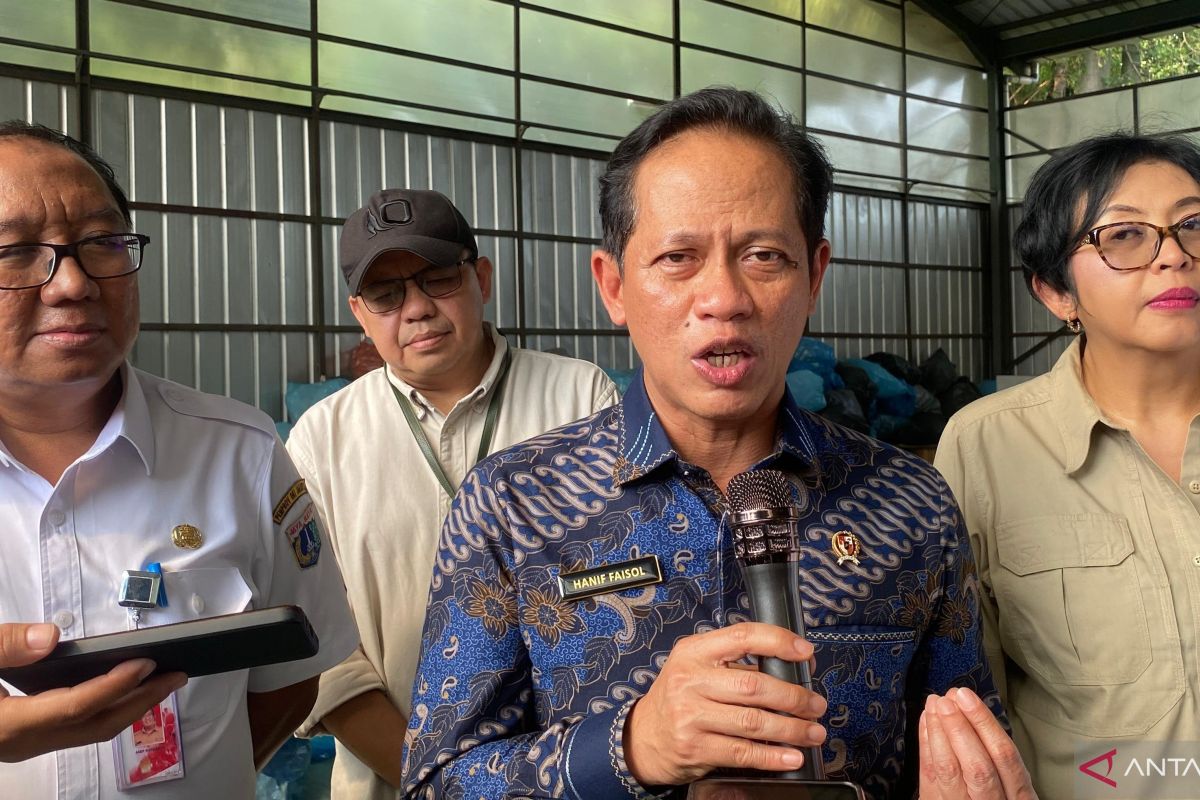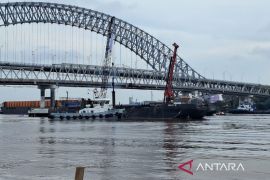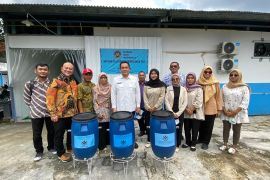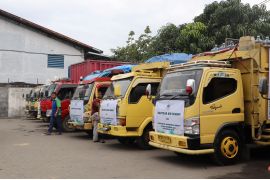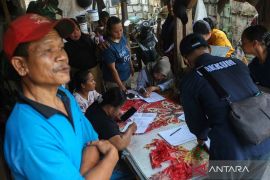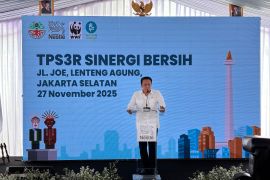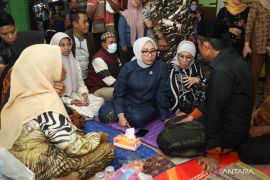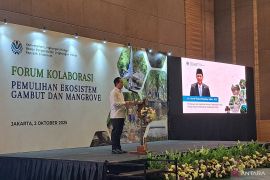Jakarta (ANTARA) - Environment Minister Hanif Faisol Nurrofiq visited the Jakarta Recycle Center to seek support and solutions to Jakarta's waste issues and determine ways to reduce the volume of waste at Bekasi's Bantargebang Integrated Waste Treatment Site.
During his visit to the recycling center in South Jakarta on Wednesday, he was briefed by head of the Jakarta Environment Office, Asep Kuswanto, on the measures taken by the center, including door-to-door information dissemination on waste sorting and recycling, to tackle the issue.
The minister said that the visit was expected to help him and his ranks coordinate with local governments and identify the next steps.
He added that though the authority and responsibility of controlling waste lies with district and municipal governments, his ministry is keen to help find solutions to waste-related problems experienced by regions.
"We must address the issue of Jakarta generating seven thousand–eight thousand tons of waste daily, starting from establishing a local waste bank or waste management unit at the neighborhood level," he stressed.
Baca juga: Jakarta's mounting waste problem
Nurrofiq added that a central waste bank could then sort the waste collected by local units and identify items that can be recycled.
The minister expressed confidence that the measure would help reduce the mounting volume of waste delivered from Jakarta to the Bantargebang waste site in Bekasi city, West Java.
Baca juga: Food barn program must consider sociocultural aspects
In addition, he drew attention to food waste, pointing to the need to fully capitalize on it by recycling it into more valuable goods, such as compost.
"We understand that food waste accounts for nearly 50 percent of Jakarta's waste. This signifies that we need to deal with about four thousand tons of food waste on a daily basis," he highlighted.
Pewarta : Prisca T, Tegar Nurfitra
Editor:
I Komang Suparta
COPYRIGHT © ANTARA 2026
